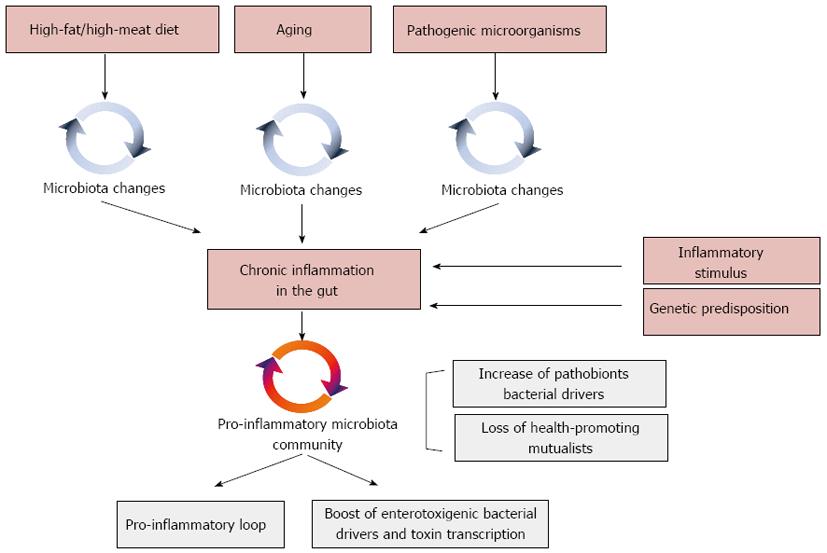Copyright
©2014 Baishideng Publishing Group Co.
World J Gastroenterol. Jan 28, 2014; 20(4): 908-922
Published online Jan 28, 2014. doi: 10.3748/wjg.v20.i4.908
Published online Jan 28, 2014. doi: 10.3748/wjg.v20.i4.908
Figure 3 Environmental triggers, such as diet, aging and pathogen infections, can force microbiota changings that, in a genetically susceptible host, can drive to chronic inflammation in the gut.
Inflammation shifts the gut microbiota towards a pro-inflammatory configuration, supporting colorectal cancer (CRC) drivers as pathobionts at the expense of health-promoting CRC-protective microbiota components. As a consequence, a pro-inflammatory loop is established in the gut, directly supporting CRC onset and favoring colonization by toxigenic bacterial drivers directly involved in CRC promotion.
- Citation: Candela M, Turroni S, Biagi E, Carbonero F, Rampelli S, Fiorentini C, Brigidi P. Inflammation and colorectal cancer, when microbiota-host mutualism breaks. World J Gastroenterol 2014; 20(4): 908-922
- URL: https://www.wjgnet.com/1007-9327/full/v20/i4/908.htm
- DOI: https://dx.doi.org/10.3748/wjg.v20.i4.908









